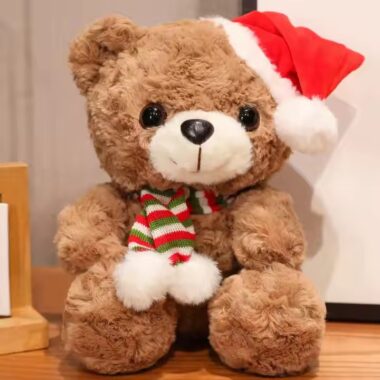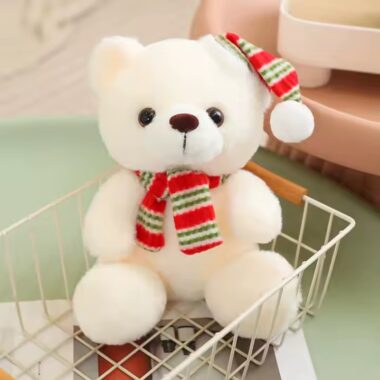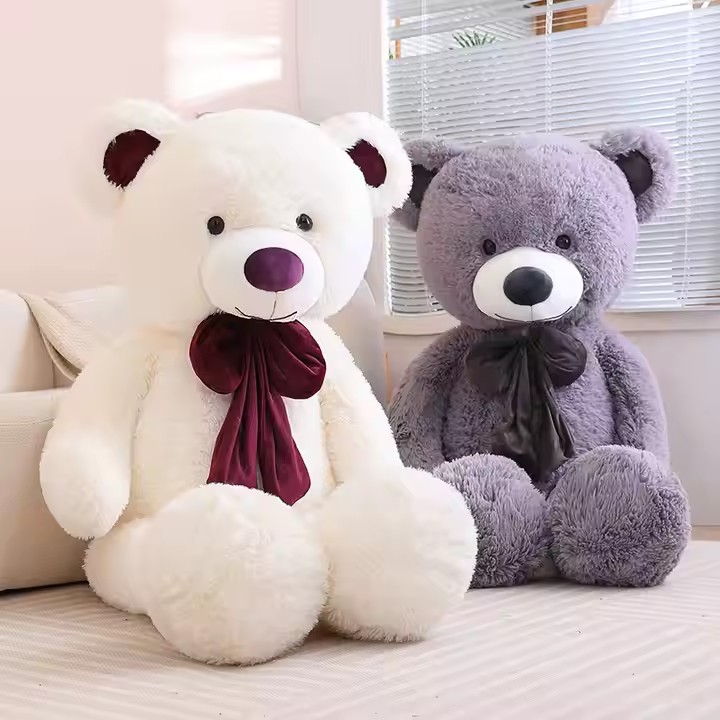Introduction
When sourcing stuffed animals from a factory, two questions always come first: What is the MOQ? and How much will it cost? MOQ (Minimum Order Quantity) and pricing are the foundation of any purchasing decision, especially for B2B buyers. Understanding how these factors are set by suppliers will help you negotiate better, plan budgets accurately, and ensure you receive products that align with your expectations.
📏 What Does MOQ Mean for Stuffed Animals?
MOQ represents the minimum number of pieces a factory requires for one production run. For stuffed animals, this number varies depending on complexity, size, and customization. A simple plush keychain might have an MOQ of 300–500 pieces, while detailed mascot plush or oversized teddy bears may require 1,000 units or more. Factories set MOQs to balance material costs, machine setup, and labor efficiency.
💡 Why Factories Set MOQs
Factories often purchase fabrics and fillings in bulk. Producing very small quantities may leave them with unused material that raises overall costs. Machine setup, embroidery programming, and cutting templates also take time, so running only a few units is not economical. By setting MOQs, a stuffed animal factory ensures production efficiency and cost control, which benefits both the manufacturer and the buyer in the long run.
💰 Key Factors That Influence Pricing
Pricing is not one-size-fits-all. Several elements directly affect the final cost of stuffed animals:
-
Design Complexity: More detailed shapes, embroidery, or accessories require extra labor and raise costs.
-
Fabric and Filling: Premium plush fabrics or eco-friendly recycled fillings are more expensive than standard polyester.
-
Customization: Adding logos, special outfits, or packaging adds to unit cost.
-
Packaging Options: Simple polybags are affordable, while printed gift boxes increase price but enhance retail value.
-
Order Quantity: Larger orders reduce per-unit cost since materials and labor are spread across more pieces.
📦 How Packaging Affects Costs
Buyers often underestimate the impact of packaging. For example, using a custom box instead of a polybag may add $0.20–$0.50 per piece. For a 5,000-unit order, that means an additional $1,000–$2,500. However, packaging upgrades can significantly improve presentation for retail or promotional markets, making them a valuable investment.
🔄 Sample Costs and Deduction Policy
Before placing a bulk order, most suppliers require samples. Sample costs usually range from $50–$150 depending on complexity. Some factories deduct this cost from the total order once mass production begins. Always confirm this policy in advance—it can reduce your overall investment.
📊 Example of Pricing Breakdown
Imagine ordering 1,000 customized teddy bears. Standard plush fabric with embroidery may cost $2.50 per piece. Adding a printed T-shirt increases it to $3.20. Upgrading packaging from polybag to box might raise it to $3.70. Shipping and compliance certificates may add further costs. This example shows how pricing builds step by step, and why clear quotations are critical.
🌍 Regional and Compliance Costs
Pricing also depends on compliance needs. Exporting to Europe or North America often requires EN71, ASTM, or CPSIA testing. These certifications add testing fees but are essential for safety and legal compliance. Discuss with your supplier whether these fees are included in the quotation or billed separately.
🤝 Negotiating With Suppliers
Buyers can often negotiate MOQs and pricing. For new customers, factories may accept smaller trial orders at slightly higher unit prices. Long-term partners usually enjoy lower MOQs and better terms. Building trust with a reliable stuffed animal supplier is the best way to achieve flexible solutions that fit your brand’s growth.
Conclusion
MOQ and pricing are not just numbers—they reflect the balance between factory efficiency, material use, and your brand’s requirements. By understanding how these factors are determined, you can negotiate smarter, avoid unexpected costs, and secure high-quality products. A transparent partnership with a professional stuffed animal factory ensures your orders are both cost-effective and reliable, supporting long-term business success.












